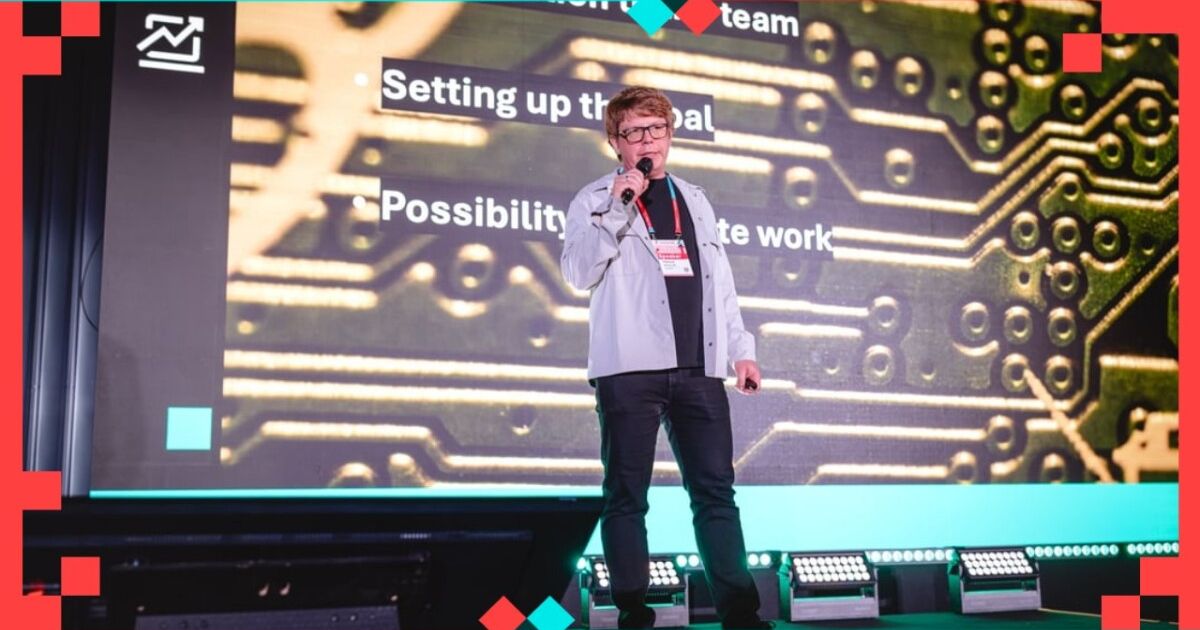VIEW SPEECH SUMMARY
Trainee Recruitment and Mentoring Programs
- Companies recruit trainees from university and high school programs.
- Mentorship of existing employees is common and beneficial.
- Matching mentor and mentee perfectly is less important than working through the process.
Key Elements of Training Paths
- Introduce trainees to development teams and daily workflows.
- Teach teamwork skills as software is developed collaboratively.
- Include trainees in daily meetings to learn presentation and communication, often in English.
- Establish clear mentorship goals based on the trainee’s level of initiative and ideas.
- Foster and encourage creativity, especially since formal education often suppresses it.
Remote Work Experience
- Training includes remote work to simulate modern software development conditions.
- Trainees experience working under time pressure and managing their own schedules.
Goals and Benefits
- Provide practical software company experience to trainees.
- Help software engineers gain teaching experience and develop new skills.
- Encourage cultural and generational diversity awareness.
- Encourage trainees to address others by name, highlighting professional environment shifts.
- Promote “switching context” both for trainees (student to professional) and engineers (developer to teacher).
Long-Term Development Focus
- Guide trainees to identify career development directions, acknowledging these may change over time.
- Share conceptual integrity by explaining the product and tools (e.g., observability tools) trainees are working on.
- Prepare trainees for future career challenges, including use of emerging AI coding tools.
- Emphasize learning approaches: tackling unknown problems, persistence, seeking help when needed.
Work-Life Balance and Continued Learning
- Stress the importance of allocating time for personal skill development outside work hours.
- Recognize that technical problem-solving requires mental readiness and dedicated effort.
Call to Action
- Encourage software engineers to actively participate in mentoring and teaching others.
- Passing knowledge to new generations is critical for producing higher quality, less error-prone software.
- Joining company mentoring programs is strongly recommended.
Actionable Items
- Establish or enhance trainee recruitment from universities and high schools.
- Develop formal mentorship programs with clear goals and pathways.
- Incorporate real team integration and daily meetings into training.
- Encourage trainees to practice remote work scenarios.
- Promote continuous learning habits and time management for skill development.
- Support engineers in transitioning into mentor/teacher roles.
- Advocate for company-wide participation in mentoring activities.
- Companies recruit trainees from university and high school programs.
- Mentorship of existing employees is common and beneficial.
- Matching mentor and mentee perfectly is less important than working through the process.
Key Elements of Training Paths
- Introduce trainees to development teams and daily workflows.
- Teach teamwork skills as software is developed collaboratively.
- Include trainees in daily meetings to learn presentation and communication, often in English.
- Establish clear mentorship goals based on the trainee’s level of initiative and ideas.
- Foster and encourage creativity, especially since formal education often suppresses it.
Remote Work Experience
- Training includes remote work to simulate modern software development conditions.
- Trainees experience working under time pressure and managing their own schedules.
Goals and Benefits
- Provide practical software company experience to trainees.
- Help software engineers gain teaching experience and develop new skills.
- Encourage cultural and generational diversity awareness.
- Encourage trainees to address others by name, highlighting professional environment shifts.
- Promote “switching context” both for trainees (student to professional) and engineers (developer to teacher).
Long-Term Development Focus
- Guide trainees to identify career development directions, acknowledging these may change over time.
- Share conceptual integrity by explaining the product and tools (e.g., observability tools) trainees are working on.
- Prepare trainees for future career challenges, including use of emerging AI coding tools.
- Emphasize learning approaches: tackling unknown problems, persistence, seeking help when needed.
Work-Life Balance and Continued Learning
- Stress the importance of allocating time for personal skill development outside work hours.
- Recognize that technical problem-solving requires mental readiness and dedicated effort.
Call to Action
- Encourage software engineers to actively participate in mentoring and teaching others.
- Passing knowledge to new generations is critical for producing higher quality, less error-prone software.
- Joining company mentoring programs is strongly recommended.
Actionable Items
- Establish or enhance trainee recruitment from universities and high schools.
- Develop formal mentorship programs with clear goals and pathways.
- Incorporate real team integration and daily meetings into training.
- Encourage trainees to practice remote work scenarios.
- Promote continuous learning habits and time management for skill development.
- Support engineers in transitioning into mentor/teacher roles.
- Advocate for company-wide participation in mentoring activities.
How to train a SW Engineer
11:35 - 11:55, 28th of May (Wednesday) 2025 / DEV TRENDS STAGE
Stories about our attempts to train new generation of software engineers. What we teach, why we teach this, how do we know if this will be useful, and other questions we ask ourselves when trying to predict the future of a person in software industry.
LEVEL:
Basic
Advanced
Expert
TRACK:
Personal Growth
Soft Skills
TOPICS:
SoftwareEngineering



